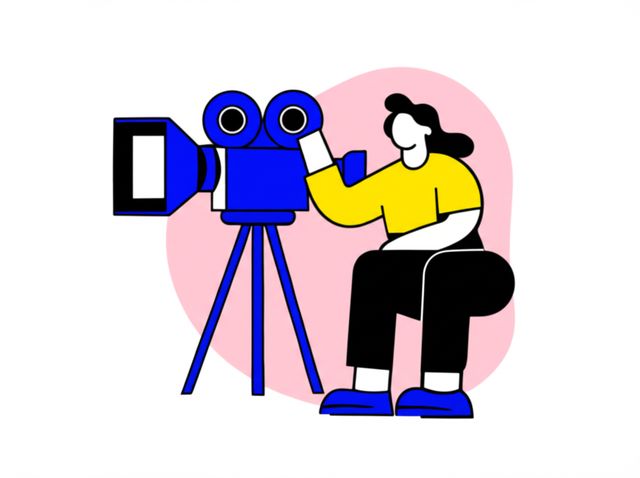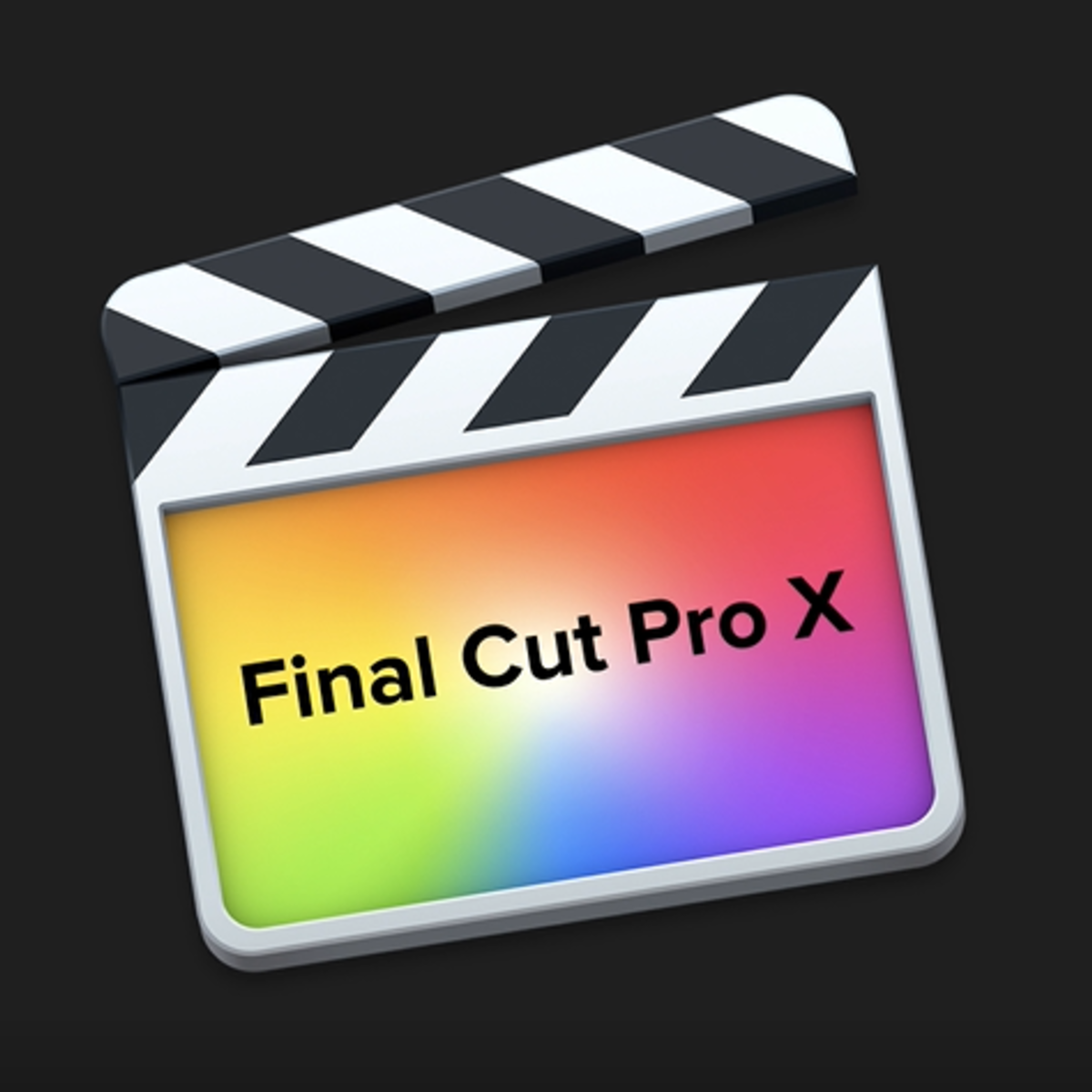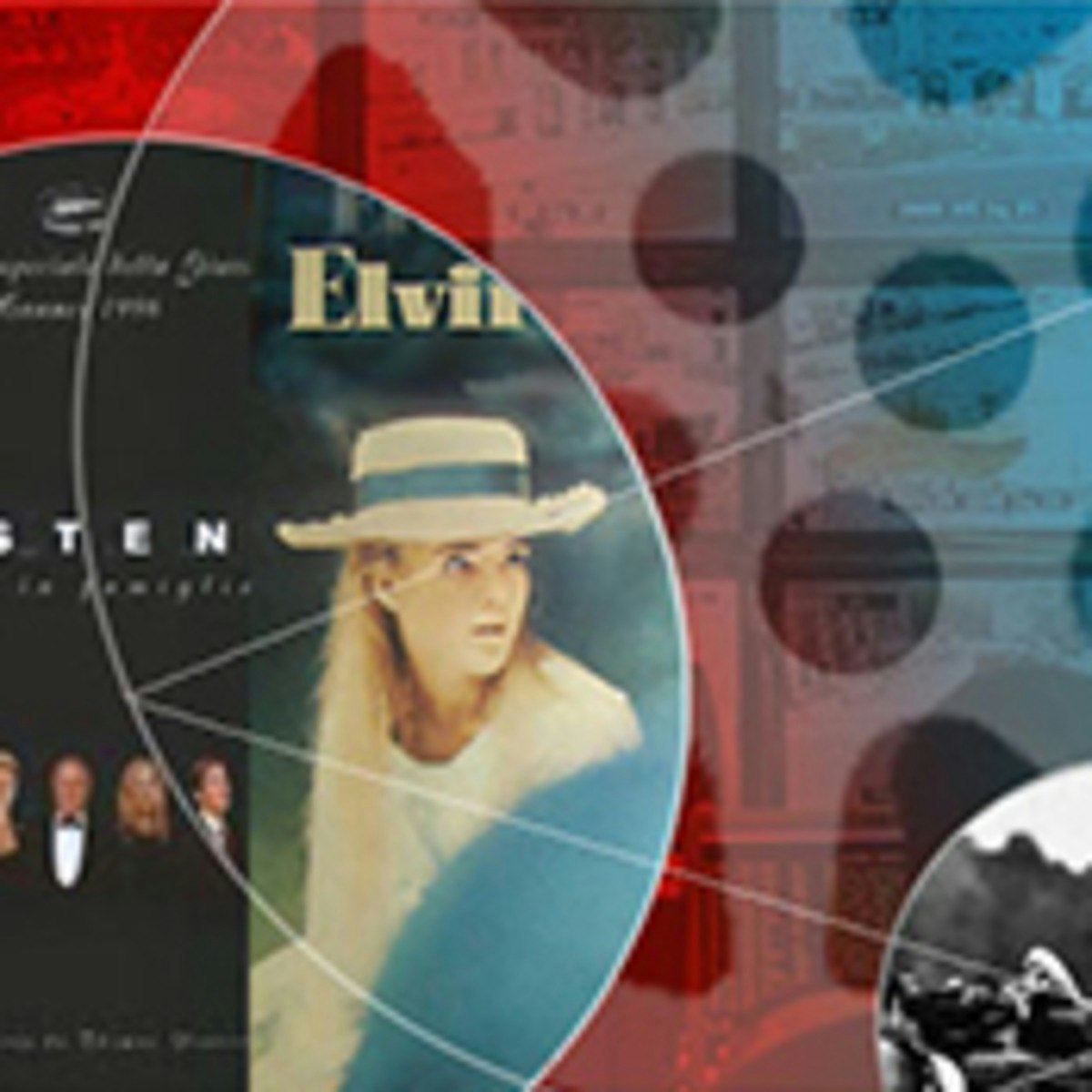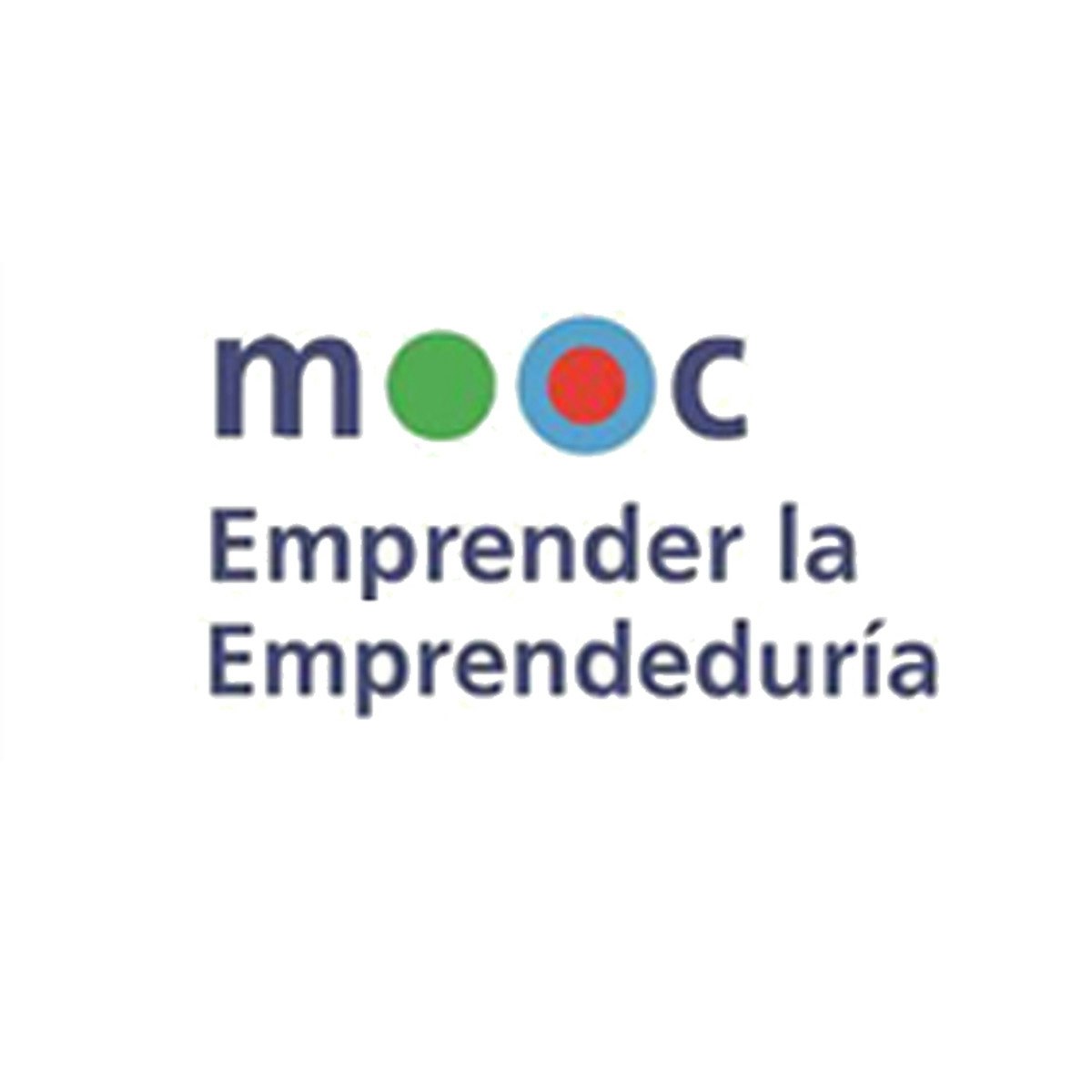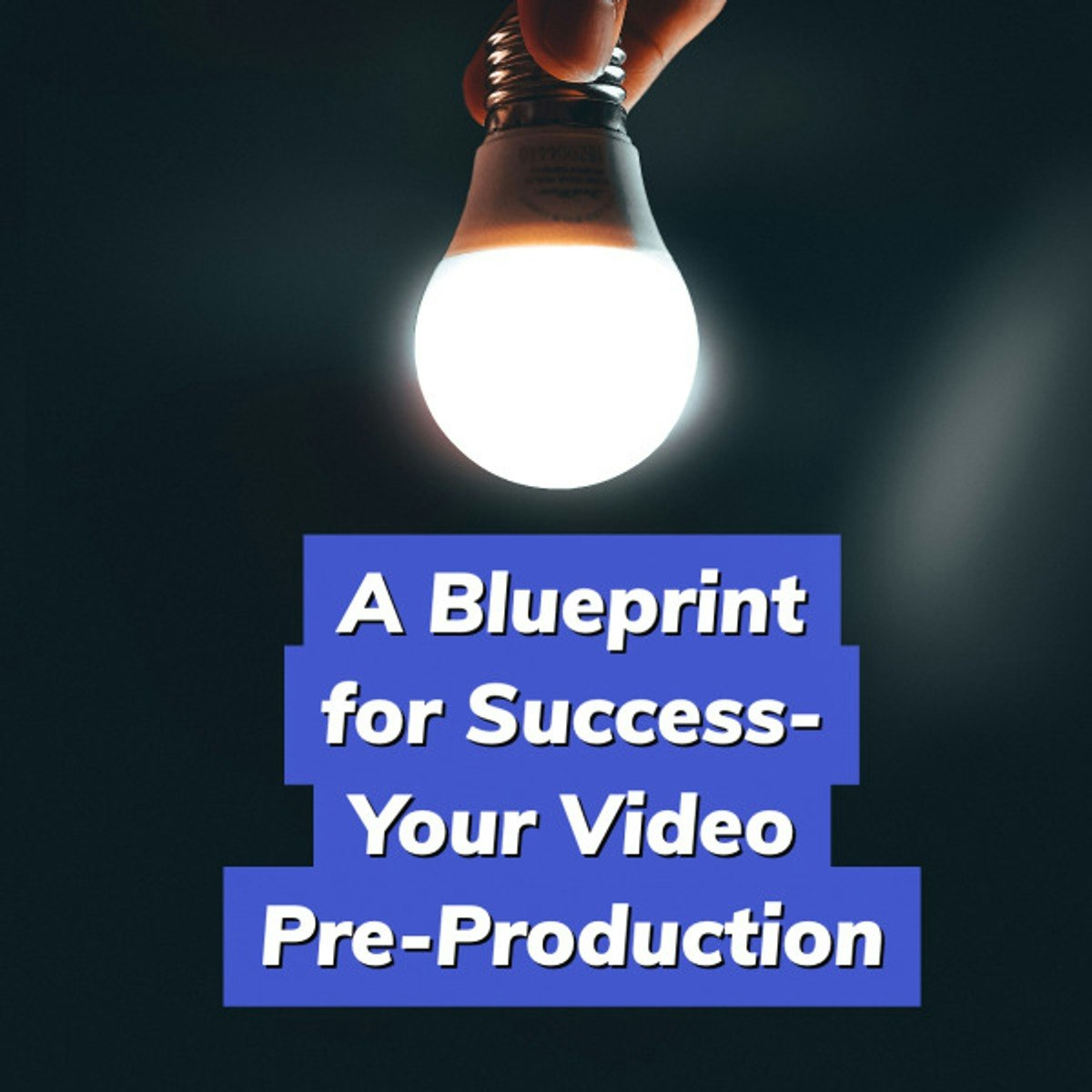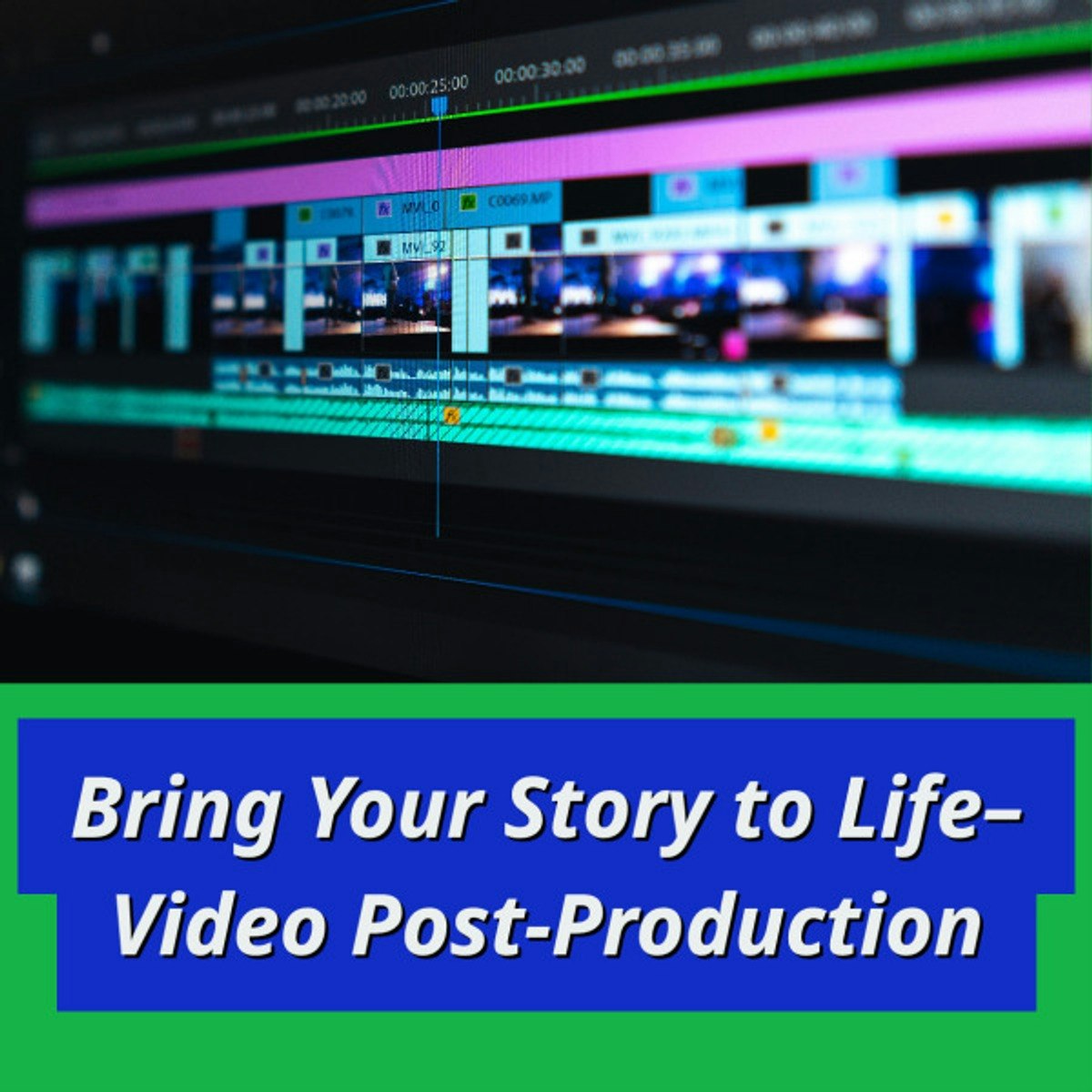Documentary Filmmaker
Exploring a Career as a Documentary Filmmaker
Documentary filmmaking is the art and practice of creating non-fiction films intended to document reality, primarily for the purposes of instruction, education, or maintaining a historical record. It's a powerful medium that uses real-life subjects, events, and issues to tell compelling stories, offer perspectives, and sometimes, advocate for change. Documentary filmmakers are essentially storytellers who work with facts, shaping them into narratives that engage, inform, and provoke thought.
Working in this field can be incredibly engaging. You might find yourself exploring diverse cultures, uncovering hidden histories, or giving voice to marginalized communities. The process involves deep research, intimate interviews, and the creative challenge of weaving complex realities into a cohesive and impactful film. For those driven by curiosity and a desire to explore the world, documentary filmmaking offers a unique path.
What Does a Documentary Filmmaker Do?
Defining the Craft
A documentary filmmaker conceives, develops, produces, directs, and often edits films about real-world subjects. Their goal is to present a factual account or perspective on people, places, events, or issues. This involves extensive research, securing access to subjects and locations, and capturing footage that authentically represents the story.
The scope is vast, ranging from intimate biographical portraits and historical explorations to investigations of social issues and explorations of the natural world. Filmmakers must blend journalistic integrity with artistic vision, making critical decisions about narrative structure, visual style, and ethical representation. They are researchers, artists, technicians, and often entrepreneurs, navigating the complex journey from idea to finished film.
Ultimately, documentary filmmakers bridge the gap between reality and audience understanding. They use the tools of cinema—camera work, sound design, editing—to craft narratives that illuminate aspects of the human experience or the world around us, aiming for authenticity and impact.
Impact on Society and Culture
Documentaries play a significant role in shaping public discourse, educating audiences, and fostering empathy. By shedding light on unfamiliar subjects or offering new perspectives on known issues, they can challenge assumptions and inspire action. Films exploring social injustices, environmental crises, or historical events often serve as catalysts for conversation and change.
In educational settings, documentaries are valuable tools for illustrating complex topics and bringing subjects to life. They provide accessible entry points into diverse fields, from history and science to anthropology and the arts. The visual and narrative power of film can make learning more engaging and memorable than traditional textbooks alone.
Furthermore, documentaries contribute to cultural preservation by capturing traditions, languages, and ways of life that might otherwise be lost. They serve as historical records, archiving moments and perspectives for future generations. This function underscores the filmmaker's responsibility to accuracy and thoughtful representation.
Documentary vs. Narrative Film
While both documentary and narrative (fiction) films use cinematic techniques to tell stories, their fundamental relationship to reality differs. Narrative films typically create fictional worlds and characters, scripted and performed by actors. Their primary allegiance is to the story being told, allowing for creative invention.
Documentary filmmaking, conversely, engages directly with the real world. Its subjects are actual people and events, and the filmmaker's role involves interpreting and presenting this reality, not inventing it. While stylistic choices and narrative shaping are involved, the ethical foundation rests on representing the subject matter truthfully.
This distinction influences every stage of production. Documentarians often work with unpredictable situations and non-actors, requiring adaptability and strong interpersonal skills. Narrative filmmakers have more control over their environment and performances. The editing process also differs, with documentarians assembling meaning from observed reality rather than pre-scripted scenes.
Core Concepts and Techniques
Structuring the Story
Documentary storytelling isn't simply recording events; it involves structuring reality into a compelling narrative. Common modes include the expository style, which uses voice-over narration and interviews to present an argument or explanation, often seen in historical or scientific documentaries. Think of classic nature documentaries with authoritative narration guiding the viewer.
The observational mode aims for immediacy, capturing events as they unfold with minimal intervention or commentary, like a "fly on the wall." Participatory documentaries involve the filmmaker directly interacting with the subjects, becoming part of the story themselves. Reflexive documentaries draw attention to the filmmaking process itself, questioning the nature of representation.
Choosing the right structure depends on the subject matter, the filmmaker's goals, and ethical considerations. Each approach offers different ways to engage the audience and convey meaning, requiring distinct skills in planning, shooting, and editing.
These courses delve into the practical steps and storytelling techniques vital for bringing a documentary vision to life.
Understanding narrative structure is crucial. These books offer deep insights into constructing compelling documentary stories.
Research and Investigation
Thorough research is the bedrock of documentary filmmaking. This can involve traditional methods like archival research—digging through historical documents, photographs, and footage—to provide context or evidence. Libraries, museums, government archives, and online databases are essential resources.
For films focusing on contemporary subjects or communities, ethnographic methods are often employed. This involves immersing oneself in the environment being documented, conducting in-depth interviews, and observing interactions over time. Building trust and rapport with subjects is paramount for gaining authentic insights.
The research phase informs the film's direction, helps identify key characters and storylines, and ensures factual accuracy. It's an ongoing process that continues throughout production as new information emerges. Strong analytical and organizational skills are crucial for managing vast amounts of material.
These books explore the intersection of ethnography and filmmaking, offering valuable perspectives for filmmakers working closely with communities.
Cinematography for Documentaries
Documentary cinematography aims to capture reality authentically while still employing visual artistry. Unlike narrative film, documentarians often work in uncontrolled environments with available light, requiring adaptability and technical proficiency. The camera operator must be ready to capture spontaneous moments as they happen.
Shot composition, camera movement, and lens choices are just as important as in fiction, but they serve the purpose of enhancing the viewer's understanding of the real-world subject. Close-ups can create intimacy with a subject during an interview, while wide shots establish context or scale. Handheld camera work might convey immediacy, while tripod shots offer stability and formality.
The cinematographer works closely with the director to establish the film's visual style, ensuring it aligns with the story's tone and message. They must balance aesthetic considerations with the practical constraints of shooting in real-world locations, often with limited crew and resources.
While not documentary-specific, understanding the fundamentals of visual storytelling through photography is highly beneficial.
Post-Production Workflows
Post-production is where the raw material of footage and sound is shaped into the final film. For documentaries, this often involves sifting through hours, sometimes hundreds of hours, of footage to find the most compelling moments and construct a coherent narrative. The editor plays a crucial role in structuring the story, pacing the film, and clarifying its message.
Key stages include logging and organizing footage, creating assembly edits, refining sequences, integrating interviews and archival material, color grading to ensure visual consistency, and sound design. Sound editing is particularly vital in documentaries, involving cleaning up dialogue, adding sound effects or ambient sound, and mixing audio levels for clarity and impact.
Software like Adobe Premiere Pro, Final Cut Pro, or DaVinci Resolve are industry standards. Mastering these tools is essential, but the creative decisions made during editing—what to include, what to exclude, how to sequence events—are what truly define the film's final form and impact.
These courses provide training in popular video editing software used in post-production.
Education Pathways for Aspiring Filmmakers
Building Foundations Before University
Aspiring documentary filmmakers can start developing skills long before entering a formal program. High school students can experiment with creating short videos using accessible tools like smartphones. Focusing on storytelling, interviewing techniques, and basic editing can build a strong foundation.
Developing a portfolio is crucial. This doesn't require expensive equipment; demonstrating a keen eye, storytelling ability, and a curious mind is more important. Engage with documentary films critically: analyze their structure, style, and ethical choices. Reading books on film history and theory can also provide valuable context.
Volunteering on local film projects or community media initiatives offers practical experience and networking opportunities. These early steps show initiative and passion, which are highly valued in competitive university program applications.
University Film Programs
Many universities offer undergraduate degrees in Film Studies, Media Production, or Communications that provide a broad education in filmmaking principles. These programs typically cover film history, theory, screenwriting, production techniques, and post-production, often including documentary-specific modules.
A Bachelor's degree provides a comprehensive understanding of the medium and exposure to various filmmaking roles. It also offers opportunities to collaborate with peers, access equipment, and build a portfolio under academic guidance. Look for programs that emphasize hands-on production and offer specialization tracks or courses in documentary.
Beyond technical skills, these programs foster critical thinking about media's role in society, ethical considerations, and different theoretical approaches to film – essential knowledge for a thoughtful documentarian. Exploring courses in related fields like Journalism, History, or Sociology can also enrich a documentary filmmaker's perspective.
Specialized Graduate Programs (MFA)
For those seeking intensive, specialized training, a Master of Fine Arts (MFA) in Documentary Filmmaking can be a valuable step. These programs are typically two to three years long and focus heavily on practical production, mentorship, and developing a unique directorial voice.
MFA programs provide access to professional-level equipment, dedicated faculty with industry experience, and a cohort of passionate peers. Students usually complete several short films and a significant thesis project, building a strong professional portfolio. These programs often have strong connections to the film industry, facilitating internships and networking.
Admission to MFA programs is highly competitive, usually requiring a strong undergraduate record, a compelling portfolio, and a clear vision for one's work. It's a significant investment of time and money, best suited for those deeply committed to a directing or producing career in documentary.
Research and Academic Paths (PhD)
For individuals interested in the theoretical, historical, or critical aspects of documentary, a PhD offers a path into academia and research. PhD programs in Film Studies, Media Studies, or Visual Anthropology allow for deep scholarly inquiry into documentary traditions, ethics, aesthetics, and impact.
Doctoral research often involves analyzing films, exploring archival materials, conducting theoretical investigations, or undertaking ethnographic fieldwork related to media practices. While some PhD programs incorporate practice-based research (creating films as part of the dissertation), the primary focus is typically on scholarly writing and contribution to academic knowledge.
A PhD prepares individuals for careers as university professors, researchers, film curators, critics, or policy analysts in media-related fields. It requires strong analytical writing skills, a passion for research, and the ability to sustain long-term independent projects.
Career Progression and Roles
Starting Out: Entry-Level Positions
Most documentary filmmakers don't start as directors. Common entry points include roles like Production Assistant (PA), Researcher, or Assistant Editor. PAs handle diverse logistical tasks on set and in the office, providing broad exposure to the production process. Researchers delve into subject matter, find potential interviewees, locate archival materials, and fact-check information.
Assistant Editors help organize footage, sync audio, create rough cuts, and support the lead editor. Internships with production companies, broadcasters, or established filmmakers are also invaluable for gaining initial experience and making connections. These roles require diligence, organization, adaptability, and a willingness to learn.
While demanding, these entry-level positions offer crucial insights into how documentaries are made from the ground up. They provide opportunities to observe experienced professionals, build fundamental skills, and begin establishing a network within the industry.
Developing Expertise: Mid-Career Roles
With experience, individuals often specialize. Cinematographers (or Directors of Photography) become responsible for the visual aspects of the film, operating cameras and designing lighting schemes. Sound Recordists capture high-quality audio on location. Editors take charge of shaping the narrative in post-production, working closely with the director.
Other mid-career paths include becoming an Associate Producer, involved in coordinating logistics, managing budgets, or overseeing specific aspects of production. Some may focus on archival producing, specializing in sourcing and clearing rights for historical materials. These roles demand greater technical mastery, creative input, and project management skills.
Building a strong portfolio of work and a reputation for reliability and skill is key to advancing to these positions. Networking remains crucial, as many opportunities arise through word-of-mouth and established relationships.
Leading the Vision: Advanced Roles
The Director is typically the creative lead, shaping the film's vision from concept to completion. They guide the crew, conduct interviews, make key narrative decisions, and oversee the editing process. The Producer is responsible for the overall project management, including fundraising, budgeting, scheduling, hiring crew, and overseeing distribution.
Often, especially in independent documentary, the roles of Director and Producer overlap or are held by the same person. Reaching these senior roles requires significant experience, a proven track record, strong leadership abilities, fundraising acumen, and a distinct artistic voice. Many successful directors and producers have spent years honing their craft in other roles.
These advanced positions involve not just creative skill but also significant responsibility for managing teams, finances, and the ethical implications of the stories being told.
This book provides insights into the production side, relevant for aspiring producers.
Alternative and Related Paths
A career in documentary filmmaking doesn't always follow a linear path to directing major features. Many skilled professionals build successful careers as freelance cinematographers, editors, or sound specialists, working on diverse projects.
Some leverage their skills in related fields like broadcast journalism, multimedia production for non-profits or corporations, or educational media development. Others pursue academic careers, teaching film production or theory at universities, combining practice with scholarly work.
The skills developed in documentary filmmaking—research, storytelling, technical proficiency, project management, communication—are transferable to various media and communication roles. For those passionate about non-fiction storytelling, exploring opportunities in podcast production, interactive documentaries, or museum exhibit design can also be rewarding alternatives.
Ethical Considerations in the Field
Informed Consent and Subject Representation
Documentary filmmakers have a profound ethical responsibility towards their subjects. Obtaining informed consent means ensuring participants understand the film's purpose, how their footage might be used, and potential risks or benefits of participation, before agreeing to be filmed. This is particularly crucial when working with vulnerable populations.
Representation goes beyond consent. Filmmakers must consider how they portray individuals and communities, avoiding stereotypes and ensuring depictions are fair and nuanced. The power dynamic between filmmaker and subject requires constant ethical reflection, particularly regarding who controls the narrative and how subjects' voices are included.
Debates continue within the field about compensation for subjects, ongoing communication after filming, and allowing subjects to review footage. Navigating these issues requires sensitivity, transparency, and a commitment to minimizing harm.
This book delves into the ethical dimensions of representing others through the camera.
Objectivity, Advocacy, and Point of View
The notion of pure objectivity in documentary is widely debated; every filmmaking choice involves subjective interpretation. However, filmmakers must strive for fairness and accuracy, distinguishing between presenting evidence and manipulating it. Transparency about the filmmaker's perspective or potential biases is increasingly valued.
Many documentaries aim to advocate for a specific cause or viewpoint. While advocacy is a legitimate function of the form, ethical filmmakers ground their arguments in factual evidence and avoid misleading representations. Balancing a strong point of view with journalistic rigor is a key challenge.
The filmmaker's relationship to the story—whether as an outside observer, an active participant, or someone personally connected to the issue—influences the ethical landscape. Clearly defining and communicating this position to the audience is part of responsible filmmaking.
This foundational text explores the history and forms of documentary, touching upon evolving ethical debates.
Cultural Sensitivity and Cross-Cultural Work
When filming in cultures or communities different from their own, filmmakers face additional ethical complexities. Understanding and respecting local customs, beliefs, and social structures is essential. Collaboration with community members or local advisors can help ensure representations are accurate and respectful.
Issues of language barriers, translation accuracy, and potential misinterpretations require careful handling. Filmmakers must be aware of how their presence might impact the community and strive to build relationships based on trust and mutual respect, rather than purely extractive practices.
Avoiding "othering" or exoticizing subjects is critical. The goal should be to foster cross-cultural understanding and empathy, portraying subjects with dignity and complexity, rather than reinforcing stereotypes or fulfilling preconceived notions.
Using Archival Materials Responsibly
Archival footage, photographs, and documents are powerful tools in documentary, but their use carries ethical responsibilities. Filmmakers must diligently research the provenance and context of archival materials to avoid misrepresenting historical events or individuals.
Securing the necessary rights and permissions (copyright clearance) is a legal and ethical requirement. Fair use doctrines may apply in some cases, but navigating this complex legal area requires careful consideration. Attributing sources appropriately is also crucial for transparency.
Beyond legalities, filmmakers should consider the ethical implications of re-contextualizing archival material. How does juxtaposing historical footage with contemporary interviews shape meaning? Does the use of sensitive or graphic archival material respect the individuals depicted and the potential impact on viewers?
Documentary Filmmaking in the Digital Age
The Rise of Streaming Platforms
Streaming services like Netflix, Hulu, HBO Max, and others have dramatically changed the landscape for documentary distribution and consumption. They provide vast platforms for documentaries to reach global audiences, creating unprecedented demand for non-fiction content across various genres.
This boom has created more opportunities for filmmakers but also intensified competition. Streamers often favor specific types of documentaries—celebrity profiles, true crime series, high-production-value nature docs—influencing funding and production trends. Understanding the programming needs and acquisition strategies of these platforms is crucial for filmmakers seeking distribution.
While potentially lucrative, deals with major streamers can involve complex negotiations regarding rights, creative control, and long-term revenue sharing. The digital era offers wider reach but requires filmmakers to be savvy negotiators and marketers.
This course touches upon strategies for potentially selling content to major platforms.
Independent Production and Funding Models
Alongside streaming giants, digital tools have empowered independent filmmakers. Lower-cost high-quality cameras and editing software make production more accessible. Online platforms facilitate direct distribution and audience engagement outside traditional gatekeepers.
Crowdfunding platforms like Kickstarter and Indiegogo have become vital tools for raising funds, particularly for independent projects or films tackling niche or controversial subjects. Building an online presence and engaging directly with potential supporters is key to successful crowdfunding campaigns.
Grant funding from foundations, arts councils, and public broadcasters remains essential, but the digital space offers supplementary avenues. Hybrid models combining grants, crowdfunding, private investment, and online distribution are increasingly common for independent productions.
Emerging Technologies and Formats
New technologies are continually shaping documentary possibilities. Virtual Reality (VR) and Augmented Reality (AR) offer immersive experiences, allowing audiences to step inside environments or interact with stories in novel ways. Creating effective VR documentaries requires new approaches to storytelling and cinematography.
Interactive documentaries, often web-based, allow users to navigate non-linear narratives, explore data visualizations, or contribute their own perspectives. These formats challenge traditional notions of passive viewership and offer dynamic ways to engage with complex subjects.
The proliferation of high-quality smartphone cameras also enables new forms of citizen journalism and participatory documentary projects, blurring the lines between professional and amateur creation. Adapting to and experimenting with these evolving technologies is key for filmmakers looking to innovate.
Social Media and Audience Engagement
Social media platforms are powerful tools not just for distribution, but for building audiences and fostering engagement around documentary projects. Filmmakers can use platforms like Instagram, Twitter, Facebook, and TikTok to share behind-the-scenes content, build anticipation for releases, and interact directly with viewers.
Targeted social media campaigns can help documentaries reach specific communities or interest groups relevant to their subject matter. Online discussions and forums provide spaces for audiences to delve deeper into the issues raised by a film, extending its impact beyond the initial viewing.
Creating supplementary content—short clips, Q&As with subjects, educational resources—optimized for social media can significantly amplify a film's reach and longevity. A strategic online presence is now an integral part of a documentary's lifecycle.
Global Opportunities and Perspectives
International Film Festivals and Markets
Film festivals are crucial platforms for documentary filmmakers to showcase their work, gain recognition, secure distribution deals, and network with industry professionals globally. Major festivals like Sundance, Cannes, Berlinale, TIFF (Toronto), IDFA (Amsterdam), and Hot Docs (Toronto) feature prominent documentary sections.
Beyond screenings, festivals host markets where filmmakers can pitch projects to funders, broadcasters, and distributors from around the world. Attending these events, even without a film in competition, provides invaluable insights into industry trends and opportunities for international collaboration.
Numerous smaller, specialized festivals focus on specific themes (human rights, environment, ethnographic film) or regions, offering targeted opportunities for filmmakers working within those niches.
Navigating Cross-Cultural Production
Producing documentaries internationally involves navigating logistical, cultural, and linguistic challenges. Securing visas, permits, and equipment transport requires careful planning. Understanding local laws, customs, and political sensitivities is essential for smooth and ethical production.
Working with local fixers, translators, and crew members is often indispensable. Building trusting relationships across cultural divides takes time and effort but enriches the filmmaking process and the final product. Sensitivity to different communication styles and social norms is paramount.
Filmmakers must be prepared for unexpected hurdles and adapt their plans accordingly. Flexibility, resourcefulness, and strong cross-cultural communication skills are vital assets for international documentary work.
Funding Sources Around the World
Funding landscapes for documentaries vary significantly by region. Many countries have public broadcasters (like the BBC in the UK, ARTE in France/Germany, NHK in Japan) that commission or co-produce documentaries. National and regional film funds also offer grants and subsidies.
Private foundations with specific mandates (e.g., environmental protection, social justice, arts support) are important funding sources globally. International co-production treaties between countries can facilitate access to funding from multiple territories.
Researching funding bodies specific to the project's subject matter or intended region is crucial. Resources like the International Documentary Association (IDA) or regional film commissions often provide directories and guidance on navigating the complex international funding ecosystem.
Language, Localization, and Global Audiences
To reach international audiences, documentaries often require localization. This involves more than just translation; it includes subtitling or dubbing dialogue, adapting graphics and text elements, and potentially making minor edits to ensure cultural relevance or clarity for different audiences.
High-quality translation and subtitling are essential for preserving the nuance and impact of the original film. Working with experienced translators familiar with the subject matter is important. Cultural consultation might also be necessary to ensure the localized version resonates appropriately.
Understanding the distribution preferences and platforms popular in different regions is key to maximizing a film's global reach. Strategic partnerships with international distributors can help navigate diverse market requirements.
Navigating the Challenges of a Documentary Career
Financial Uncertainty and Funding Hurdles
Perhaps the most significant challenge for many documentary filmmakers is financial instability. Funding for independent documentaries is highly competitive and often project-based, leading to periods of inconsistent income. Securing grants, investments, or commissions requires persistent effort, strong proposals, and often, a proven track record.
Even when funded, budgets are frequently tight, demanding resourcefulness and careful financial management. Many filmmakers supplement their income with commercial work, teaching, or other jobs, particularly early in their careers. Building a sustainable career often involves diversifying income streams and developing strong business skills alongside creative ones.
If you are considering this path, especially as a career change, it's vital to be realistic about the financial aspects. It often requires passion, perseverance, and a tolerance for uncertainty. However, the reward of bringing important stories to light can be immense.
This book offers guidance on navigating the financial realities of independent film production.
Market Saturation and Competition
While the demand for documentary content has grown, so has the number of filmmakers and projects vying for attention and funding. Certain genres, like true crime or celebrity biographies, can feel saturated, making it harder for unique or unconventional stories to break through.
Standing out requires a strong, original vision, exceptional storytelling skills, and often, access to unique subjects or compelling characters. Developing a distinct voice and style can help differentiate your work. Strategic networking and understanding the specific needs of broadcasters, streamers, and funders are also crucial.
Don't be discouraged by the competition, but be prepared for it. Focus on honing your craft, telling stories you are passionate about, and finding creative ways to reach your intended audience. Persistence and resilience are key attributes.
Fieldwork Demands and Personal Toll
Documentary filmmaking, particularly projects involving extensive fieldwork, can be physically and emotionally demanding. Shooting in remote locations, challenging environments, or conflict zones requires physical stamina and adaptability. Long hours and unpredictable schedules are common.
Engaging deeply with difficult subject matter—trauma, injustice, suffering—can take an emotional toll. Filmmakers must develop coping mechanisms and prioritize self-care to avoid burnout. Building strong support systems and seeking resources for mental health when needed is important.
The immersive nature of documentary work can also strain personal relationships due to frequent travel and intense focus required during production. Balancing professional passion with personal well-being is an ongoing challenge in this demanding field.
Intellectual Property and Legal Issues
Navigating intellectual property (IP) rights is a constant aspect of documentary filmmaking. Securing permissions for music, archival footage, photographs, and even locations can be complex and costly. Understanding copyright law, fair use principles, and clearance procedures is essential to avoid legal disputes.
Errors and omissions (E&O) insurance is often required for distribution, protecting filmmakers against claims of defamation, invasion of privacy, or copyright infringement. Thorough fact-checking and maintaining detailed records of consents and licenses are vital risk management practices.
Disputes over creative ownership or revenue sharing can also arise, particularly in collaborative projects. Clear agreements outlining roles, responsibilities, and rights from the outset can help prevent conflicts down the line.
Frequently Asked Questions (FAQs)
How can I start a documentary filmmaking career without formal film school training?
While film school provides structured learning and resources, it's not the only path. Start by consuming documentaries critically. Get hands-on experience: use accessible equipment (like smartphones) to shoot and edit short projects. Focus on storytelling fundamentals.
Seek out opportunities to learn practical skills through online courses, workshops, or community media centers. Volunteer on local film sets as a PA or intern with production companies to gain exposure and network. Build a portfolio showcasing your potential, even with simple equipment.
Passion, persistence, and a strong portfolio demonstrating your unique perspective and storytelling ability can open doors, regardless of formal qualifications. Many successful filmmakers are self-taught or learned through apprenticeship.
Online platforms like OpenCourser offer a vast range of courses to build foundational skills affordably.
What are the key differences between a documentary filmmaker and a journalist?
While both deal with facts and reality, their approaches often differ. Journalism typically emphasizes timely reporting, objectivity (though this is also debated), and adherence to specific news formats and ethical codes. Deadlines are often short, and the focus is on disseminating information quickly.
Documentary filmmaking usually involves longer production timelines, allowing for deeper exploration of subjects and more stylistic interpretation. While rooted in reality, documentaries often employ more cinematic techniques, narrative structures, and artistic expression to convey meaning and evoke emotion. The filmmaker's point of view may be more explicitly present.
There is significant overlap, especially in investigative documentaries, and many professionals move between the fields. However, the core emphasis often differs: journalism prioritizes immediacy and information dissemination, while documentary often focuses on in-depth storytelling and cinematic craft.
What are typical salary ranges at different career stages?
Salaries in documentary filmmaking vary widely based on role, experience, location, project budget, and employment type (freelance vs. staff). Entry-level roles like PA or researcher might offer low hourly wages or stipends, sometimes starting near minimum wage or slightly above, depending on the market. Reliable data is scarce due to the freelance nature of much of the work.
Mid-career professionals like experienced editors or cinematographers working freelance command day rates or project fees that can range significantly, potentially from $300-$800+ per day, depending on reputation and project scale. Staff positions at production companies or broadcasters offer more stability but might have lower peak earning potential compared to successful freelancers.
Established directors and producers face the most variability. Income often depends on securing funding, distribution deals, and potential profit participation, which can be unpredictable. Some achieve significant financial success, while many sustain themselves through a mix of projects and other work. According to some industry sources, producers and directors might earn salaries comparable to other media management roles if working consistently, but freelance income fluctuates greatly. Consulting resources like the Bureau of Labor Statistics (BLS) for producers and directors can provide general benchmarks, but note this data combines film, TV, and stage, not specifically documentary.
What are the essential technical skills for someone starting out?
Basic camera operation is fundamental – understanding exposure, focus, composition, and capturing stable footage. Proficiency in non-linear editing software (Final Cut Pro, Adobe Premiere Pro, DaVinci Resolve) is crucial for assembling and refining the story.
Understanding sound recording principles is vital; capturing clean audio is often more critical than perfect visuals. Basic lighting techniques, even using natural light effectively, enhance visual quality. Media management skills—organizing large amounts of footage and data—are essential for efficient post-production.
Beyond specific software, adaptability and troubleshooting skills are key. Technical issues often arise on shoots or during edits, requiring resourcefulness to solve problems quickly. Continuous learning is necessary as technology evolves.
These courses cover essential software and techniques for aspiring filmmakers.
How might Artificial Intelligence (AI) impact documentary production?
AI is beginning to influence various aspects of filmmaking. In post-production, AI tools can assist with tasks like transcribing interviews, logging footage automatically, generating rough cuts, or even automating aspects of color grading and sound mixing. This could potentially speed up workflows and reduce tedious labor.
AI might also aid in research by analyzing vast datasets or identifying relevant archival materials more efficiently. Some speculate AI could eventually assist in script analysis or even generate visual elements, though creative control remains paramount.
However, ethical considerations arise regarding AI's role in representing reality, potential biases in algorithms, and the impact on employment for certain roles. While AI offers powerful tools, human judgment, creativity, and ethical decision-making remain central to documentary filmmaking.
How do filmmakers balance their creative vision with funding requirements?
This is a perennial challenge. Funders (broadcasters, streamers, foundations) often have specific mandates, target audiences, or thematic interests that may not perfectly align with a filmmaker's initial vision. Securing funding often requires adapting proposals or shaping the project to meet funders' criteria.
Successful filmmakers learn to articulate their vision compellingly while demonstrating how it aligns with a funder's goals. This involves strong proposal writing, pitching skills, and sometimes, strategic compromises. Finding funders whose missions genuinely resonate with the project is ideal.
Maintaining creative integrity while satisfying practical requirements involves negotiation, clear communication, and sometimes, seeking multiple funding sources to retain more control. It's a balancing act between artistic ambition and the pragmatic realities of financing a film.
Embarking on a career as a documentary filmmaker is a path fueled by curiosity, creativity, and a desire to explore and share real-world stories. It demands technical skill, ethical awareness, resilience, and entrepreneurial spirit. While challenging, the potential to inform, inspire, and connect with audiences through the power of non-fiction film makes it a uniquely rewarding pursuit for dedicated individuals.

